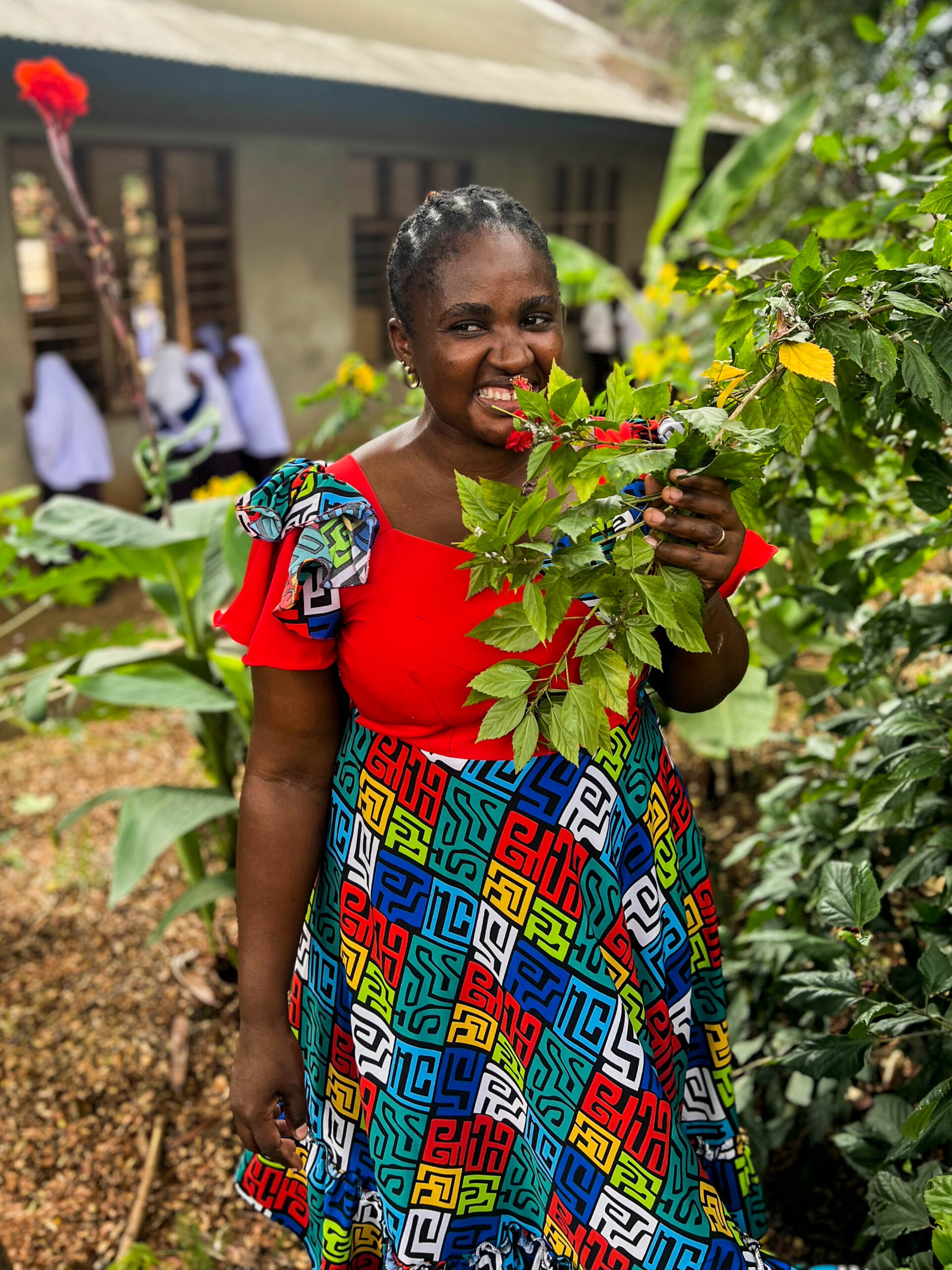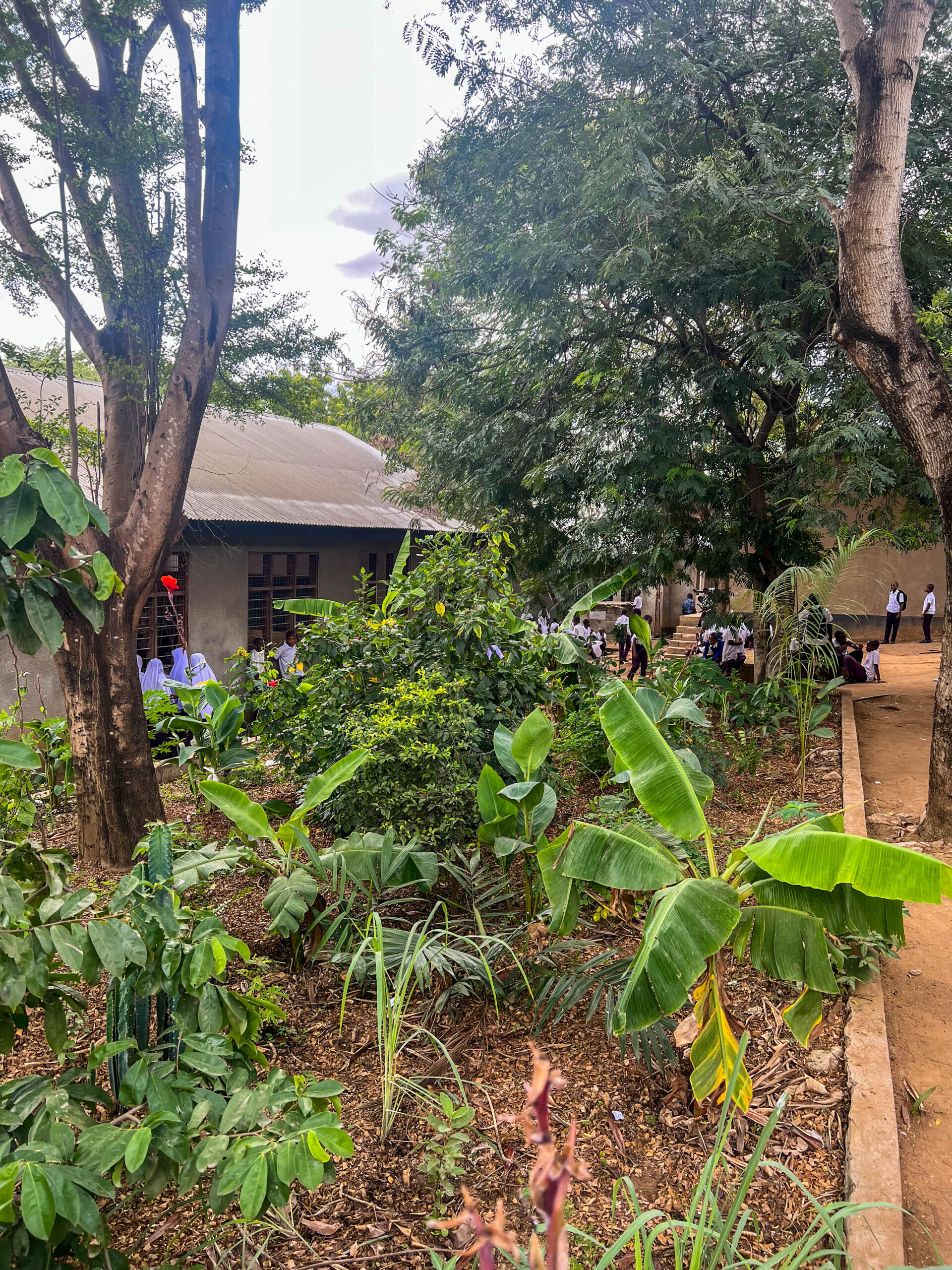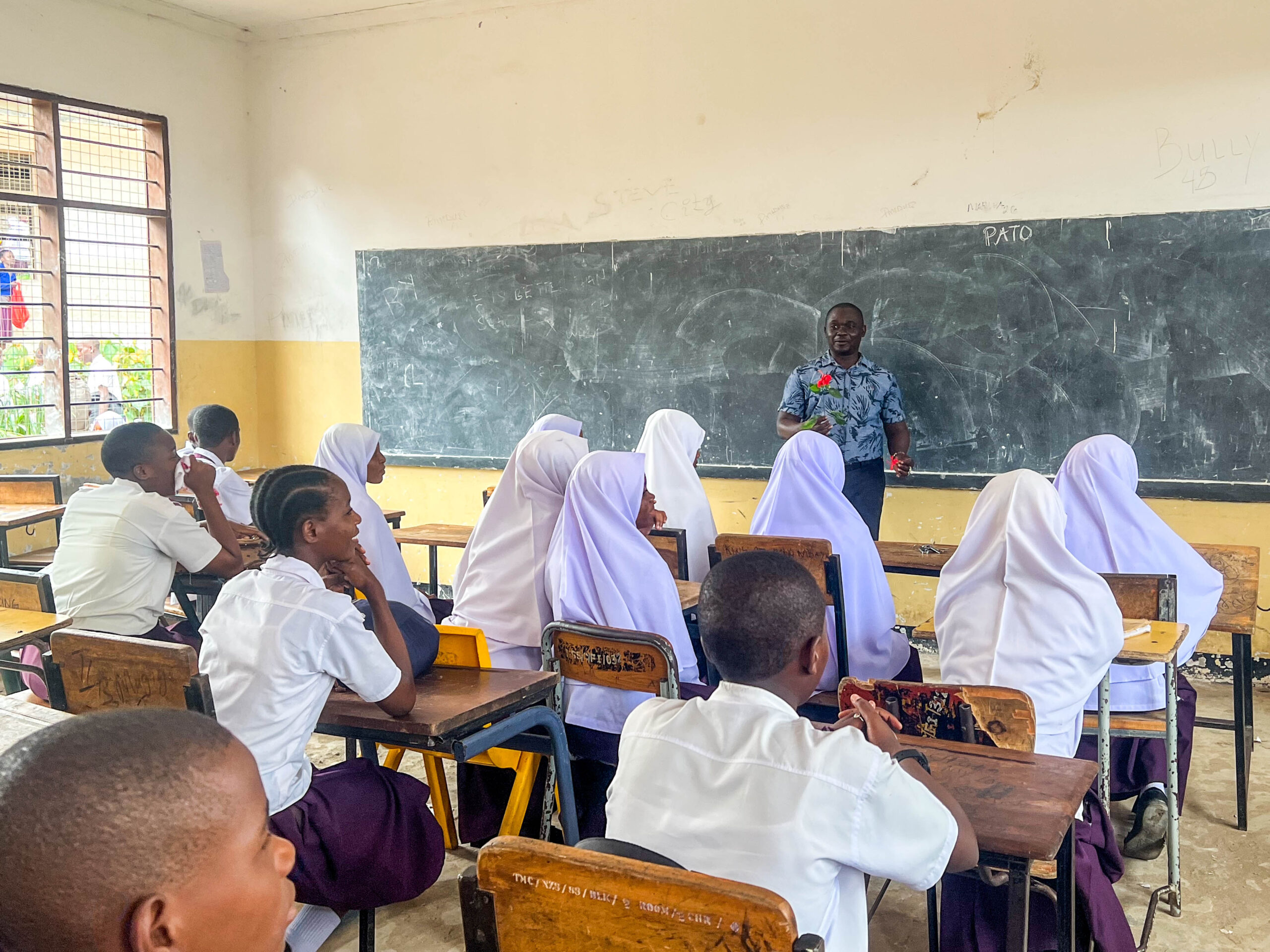The end of March is a busy time at Nzasa Secondary School. Ramadan is in full swing, the Easter break is just around the corner, and students are in the midst of exams, queuing outside classrooms under the hot sun. At this school in the outskirts of Tanzania’s capital city, Dar es Salaam, there are more than 2,800 students, but as teacher Mr. Jenga Othman explains, the school “is very small compared with the number of students – the total area is just one square kilometre.” Aside from a few large trees, the school grounds are dry and dusty, but as you weave between the classrooms, there is a glimpse of something out of the ordinary. An explosion of green, an oasis of cool air, a lush, shaded canopy – it’s a micro-forest.
The micro-forest at Nzasa Secondary School is one of 15 planted by students, teachers, and communities through the Aga Khan Foundation’s (AKF) Play, Pluralism and the Planet (PPP) initiative. PPP is being delivered in Tanzania via AKF’s flagship education programme, Schools2030, and aims to enable learners, teachers and communities’ meaningful participation at the cross-section of climate action and education innovation. Officially launched at COP27 last year, PPP is a pilot initiative funded by Dubai Cares’ as one of 11 winners of a RewirEd Innovation Grant, announced at last year’s RewirEd Summit.
Shaibu Mandova, National Coordinator for Schools2030 in Tanzania and former teacher, explains why we’re working in the education sector to take on this challenge, “We choose schools because we want to work with students. We want them to be ambassadors on environmental issues, understand the effect of environmental degradation and find solutions on how to involve communities in protecting the environment, especially through tree planting.”
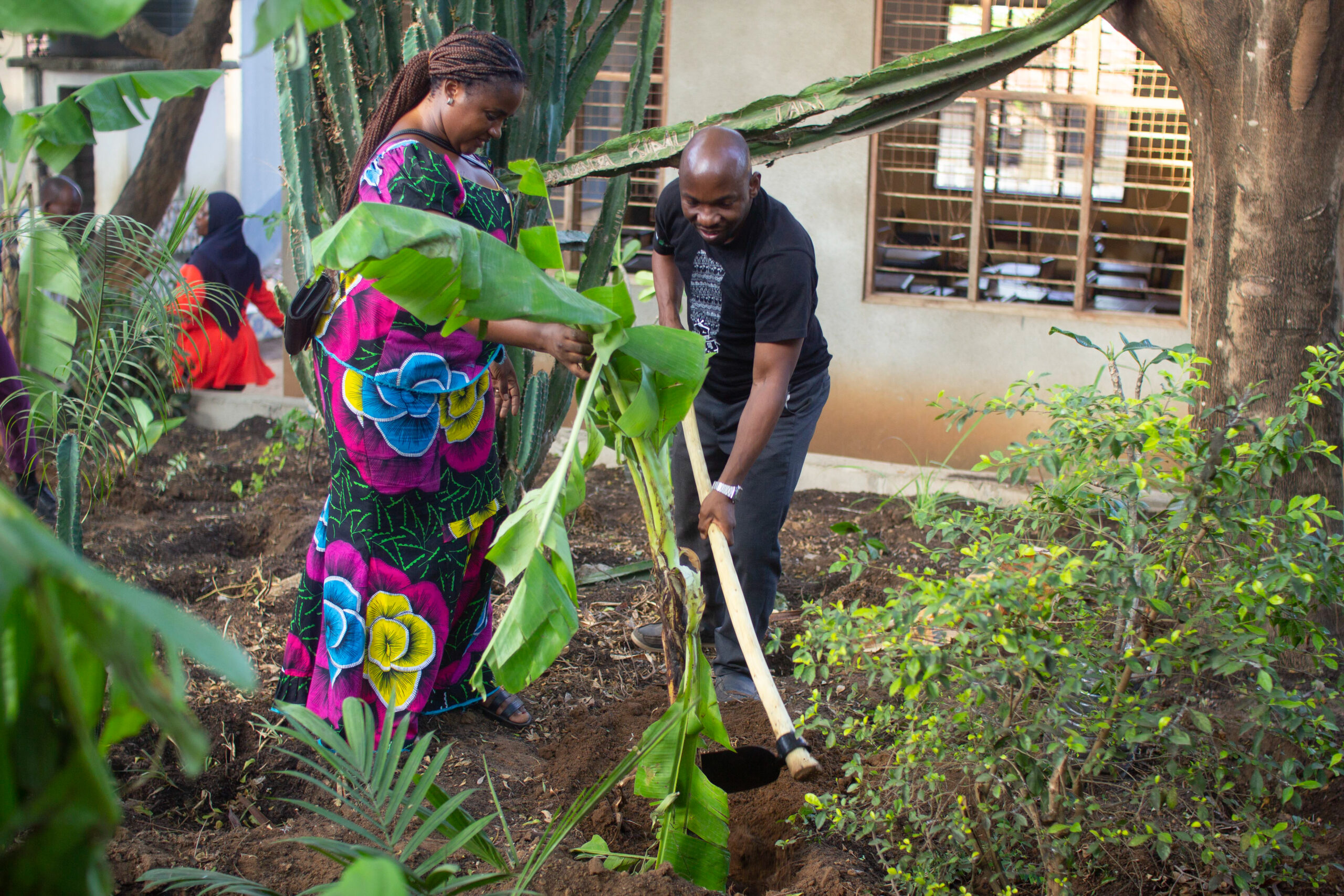
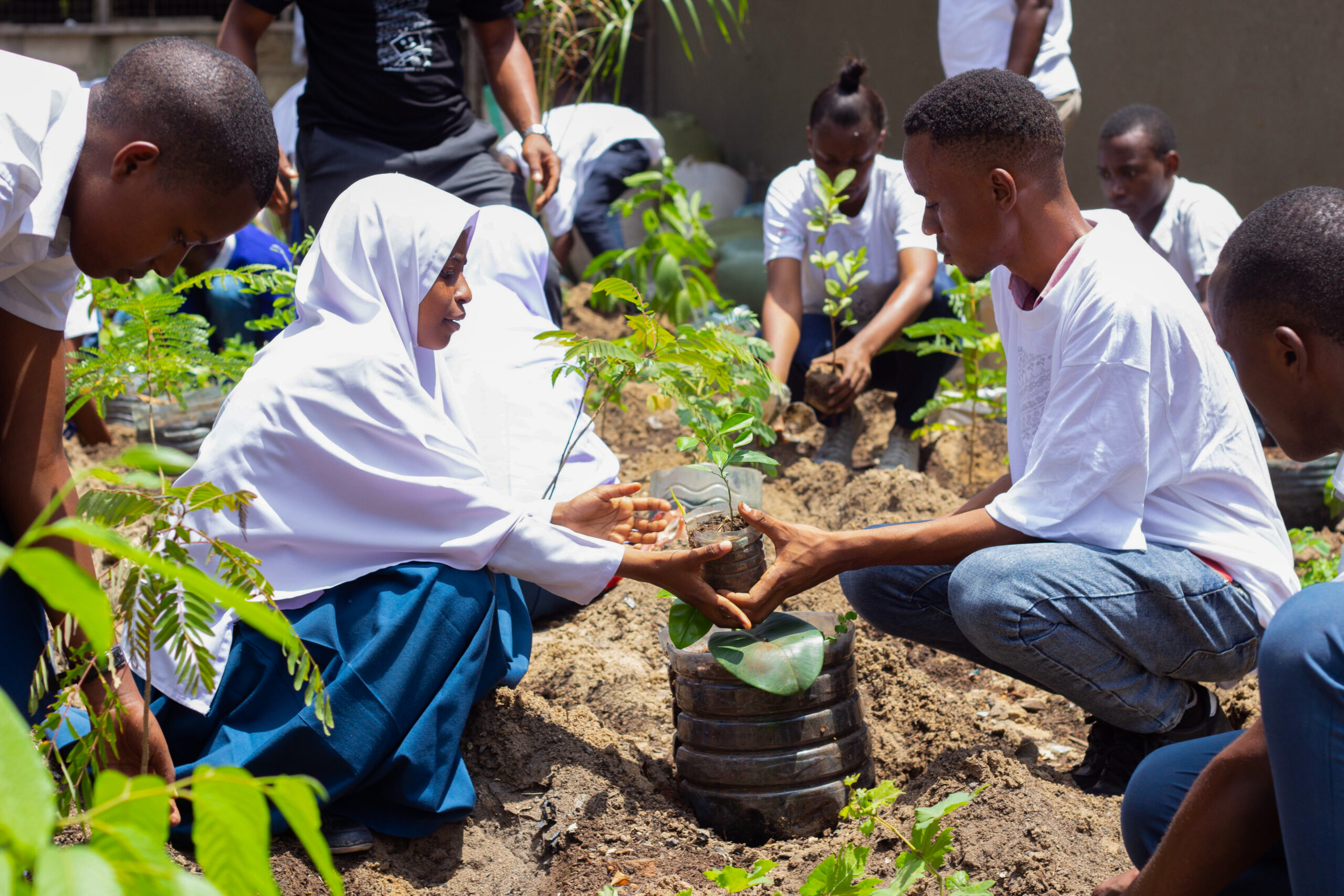
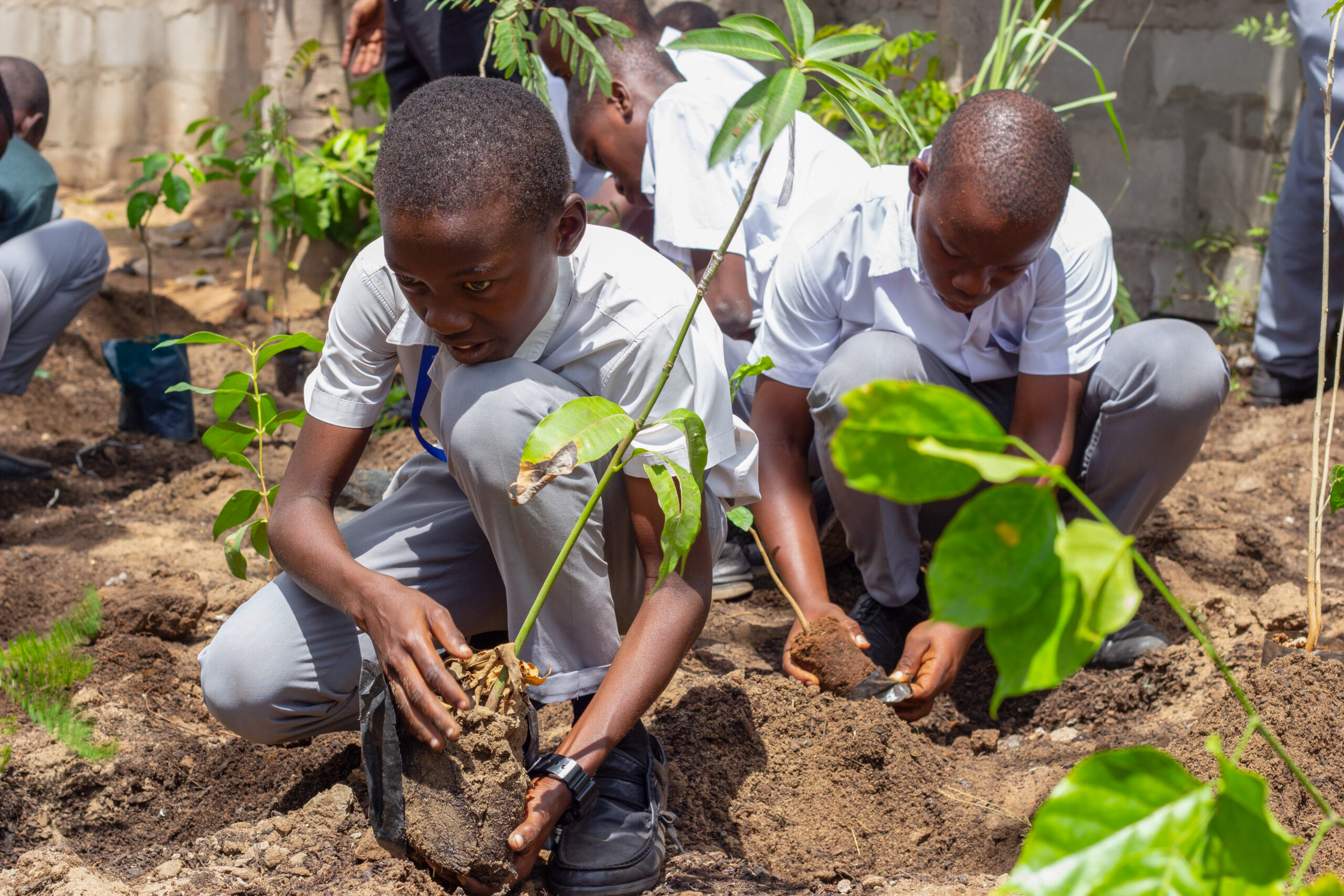
Amid Dar es Salaam’s rainy season, the impacts of climate change are all too clear for the school community at Nzasa Secondary School. As the students take their exams, dark clouds gather overhead, signalling imminent heavy rains. The streets of Dar flood quickly, causing traffic chaos and disrupting the fast pace of the city. Flash floods are just one of many symptoms of the climate crisis worldwide, with communities in the Global South most affected.
At AKF, we believe that locally led solutions are the most effective way to build climate resilience; climate initiatives should not only respond to the environmental challenges, but also promote equity and inclusion, involving stakeholders at all levels. Children and young people are key players in this approach, as they are the ones who will live with the long-term impacts of this crisis. Their teachers, therefore, can provide invaluable support in growing their environmental knowledge and inspiring the next generation of climate activists.
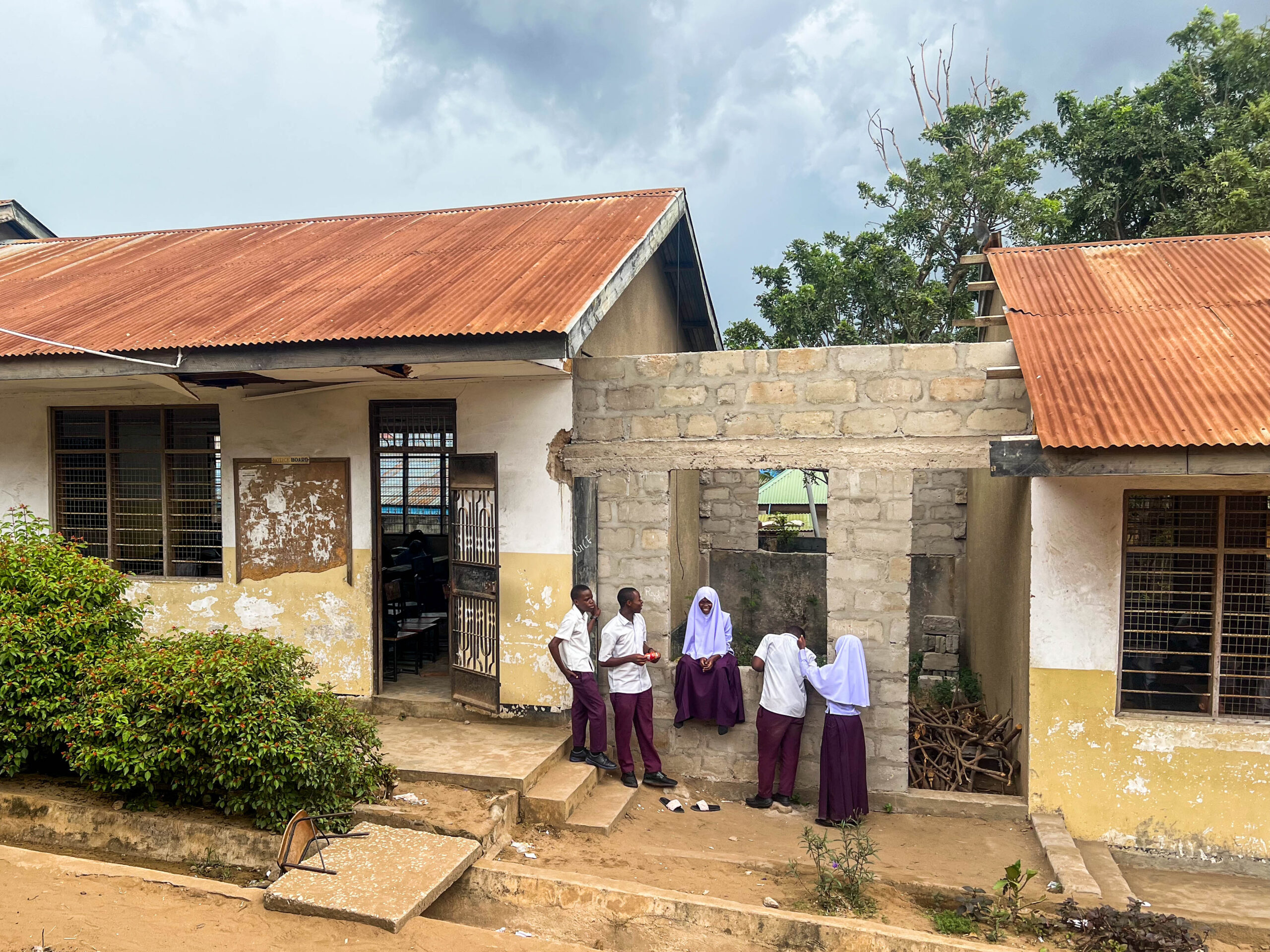
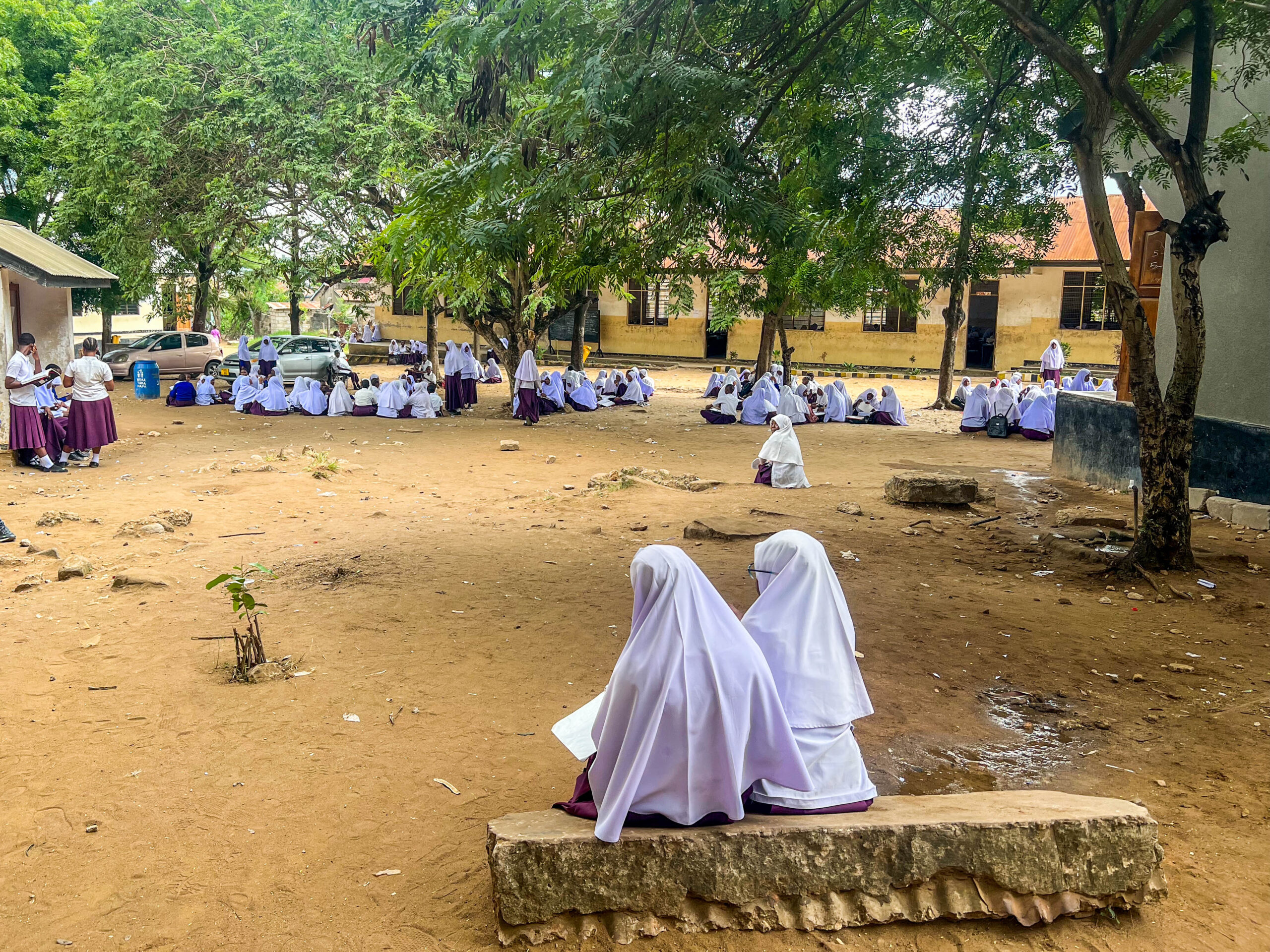
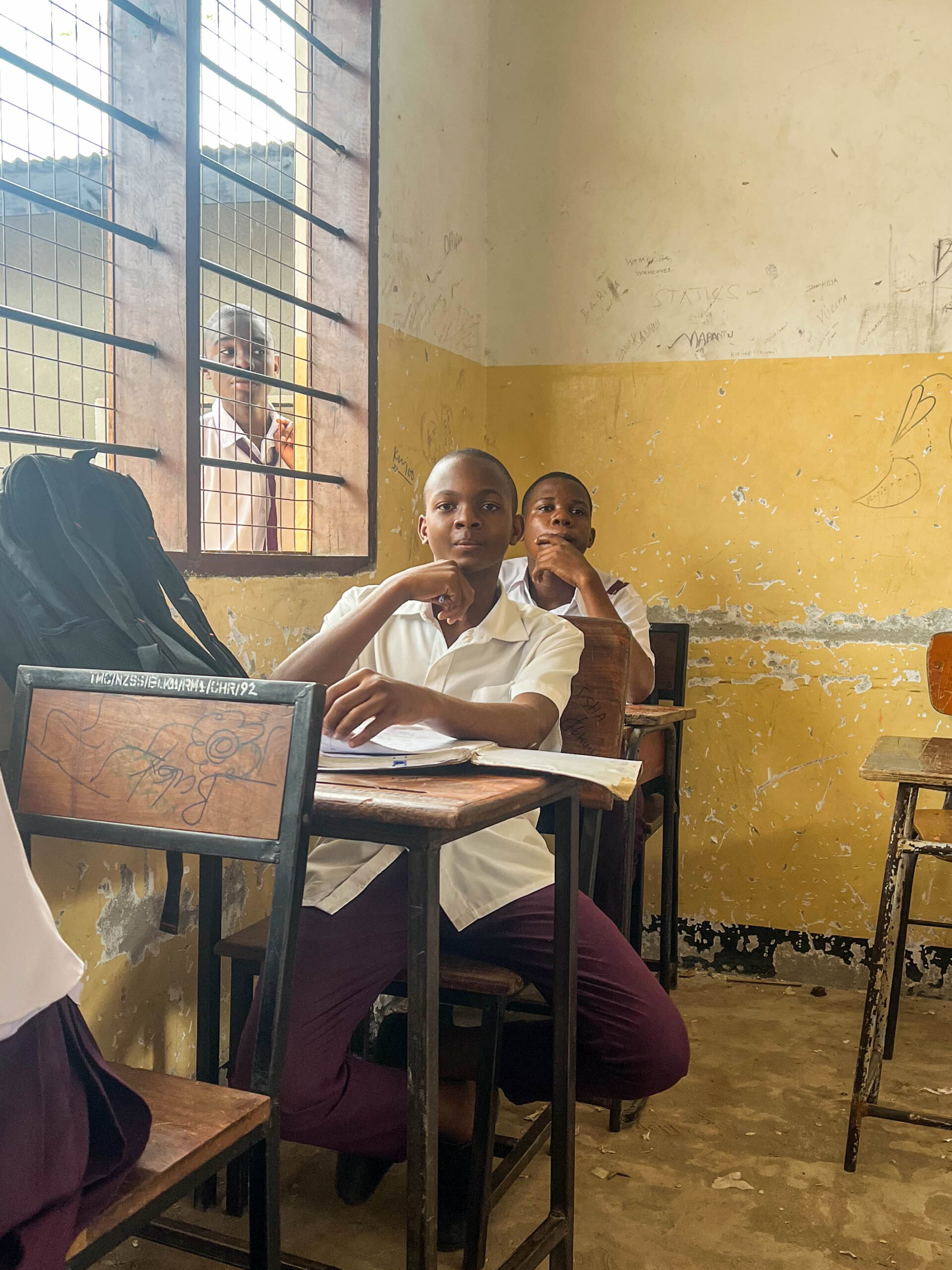
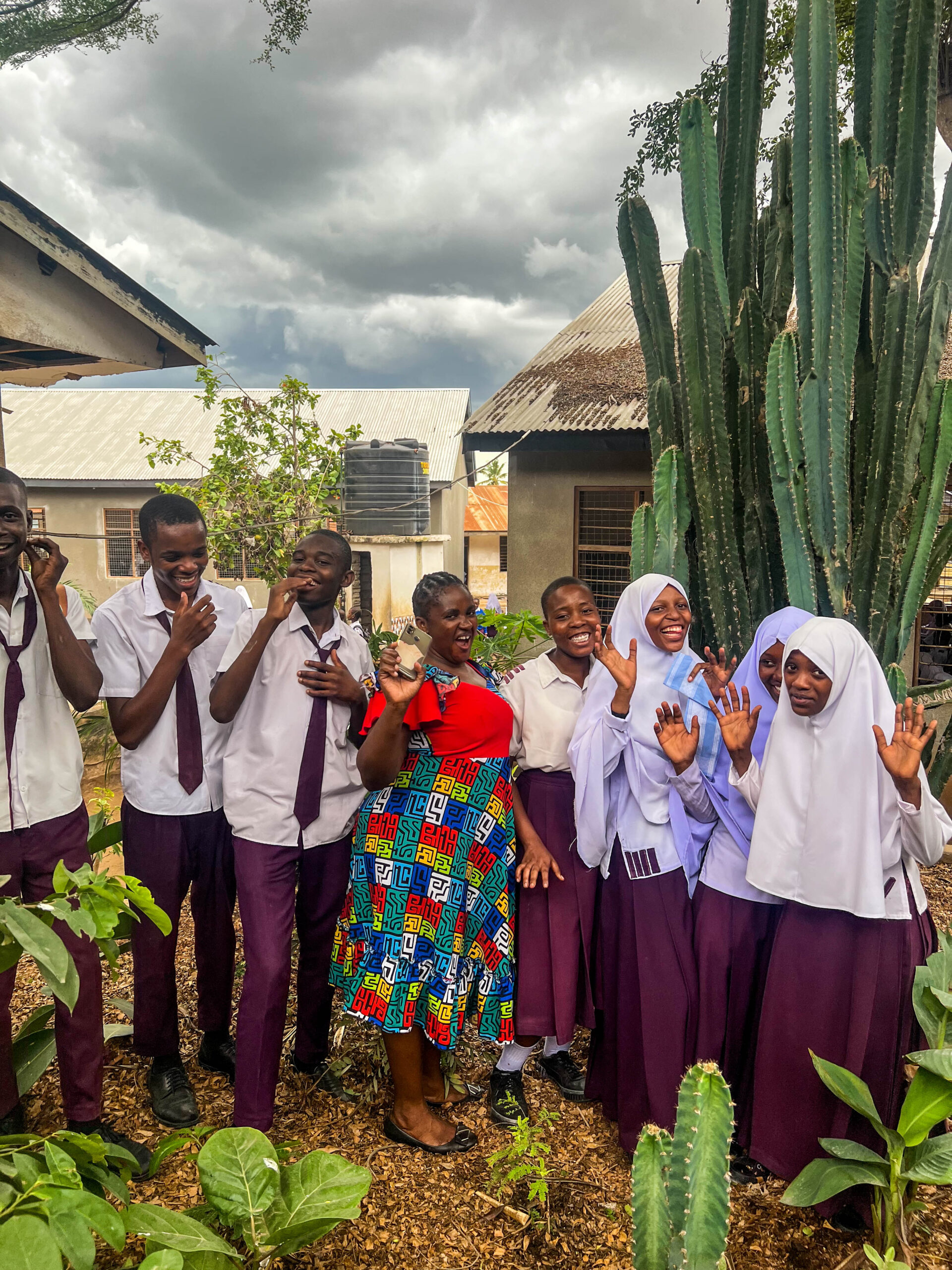
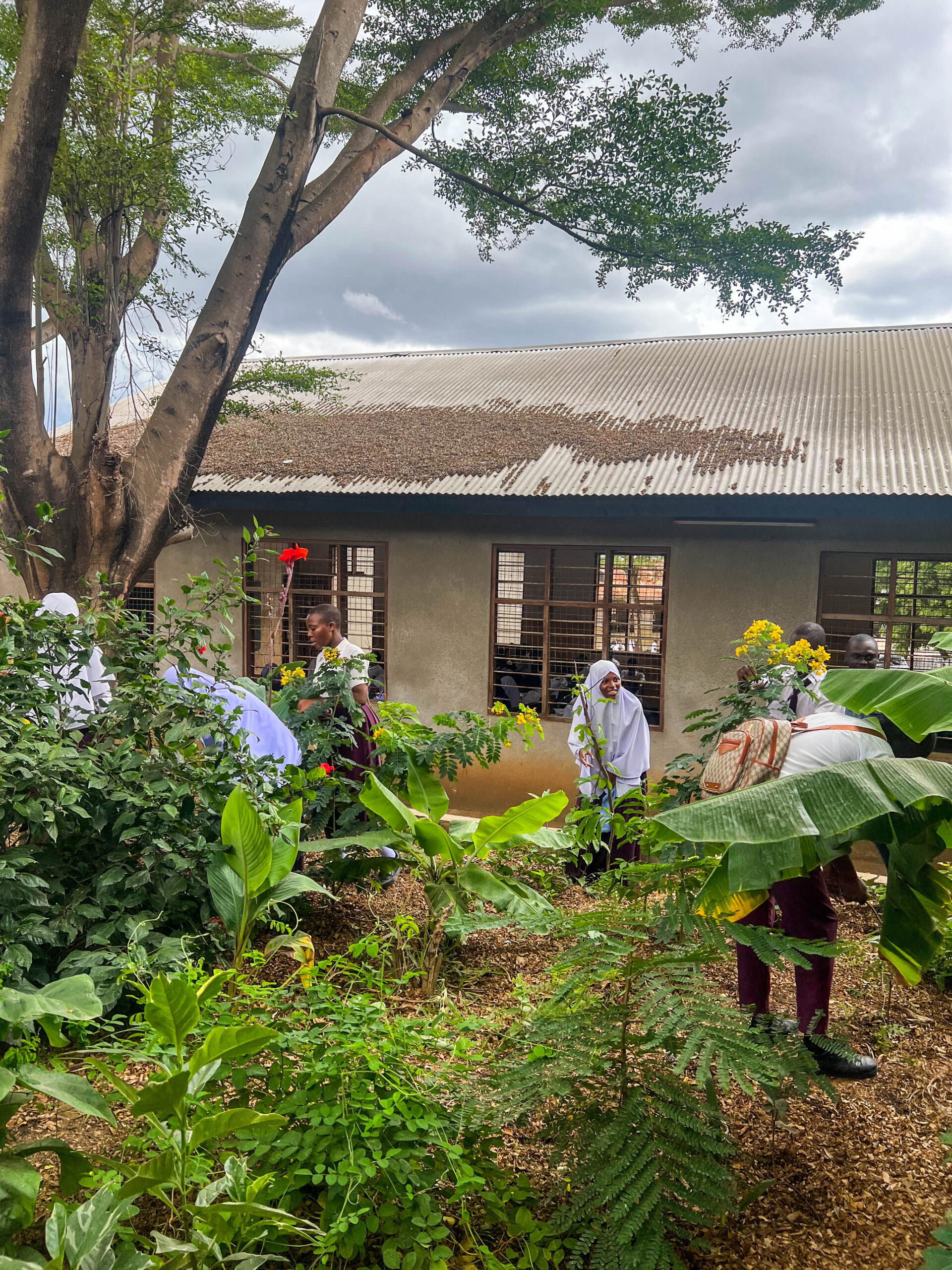
In a bid to weave climate resilience into education, PPP kicked off with a workshop in Dar es Salaam. The workshop, which had 60 teachers and administrators in attendance from various schools in the area, aimed to introduce micro-forestry, vermi-composting, and rainwater harvesting to biology, geography, and food studies teachers, as well as other school actors.
During the workshop, AKF distributed a workbook on each theme to help the teachers understand how they might integrate the new concepts into their teaching. The participating teachers had various motivations for joining the workshop, including creating a better learning environment for their students, earning more income for their school, and enhancing their teaching through new learning initiatives that factor in social-emotional and hands-on learning opportunities.
Micro-forests were identified as one of the most effective solutions – they are small, dense, biodiverse forests that grow fast in urban and rural areas alike. They stimulate biodiversity, absorb carbon dioxide from the atmosphere, provide livelihood opportunities, and in this instance, offer a space for students to learn through practical lessons. Madam Lusajo Chanya, a teacher at Nzasa Secondary School and a participant of the workshop, says “We’ve used the micro-forest for planting different kinds of trees, flowers and other things which are very beneficial for our learners. It improves our teaching because the students can learn by seeing.”
“We’ve used the micro-forest for planting different kinds of trees, flowers and other things which are very beneficial for our learners. It improves our teaching because the students can learn by seeing.”
Madam Lusajo Chanya, teacher
Since the workshop, 15 micro-forests have been planted at 15 schools. One of the highlights has been the participation of local communities who volunteered to help plant these small but mighty climate solutions. The micro–forests are serving as a space for the entire community to enjoy, not just teachers and learners.
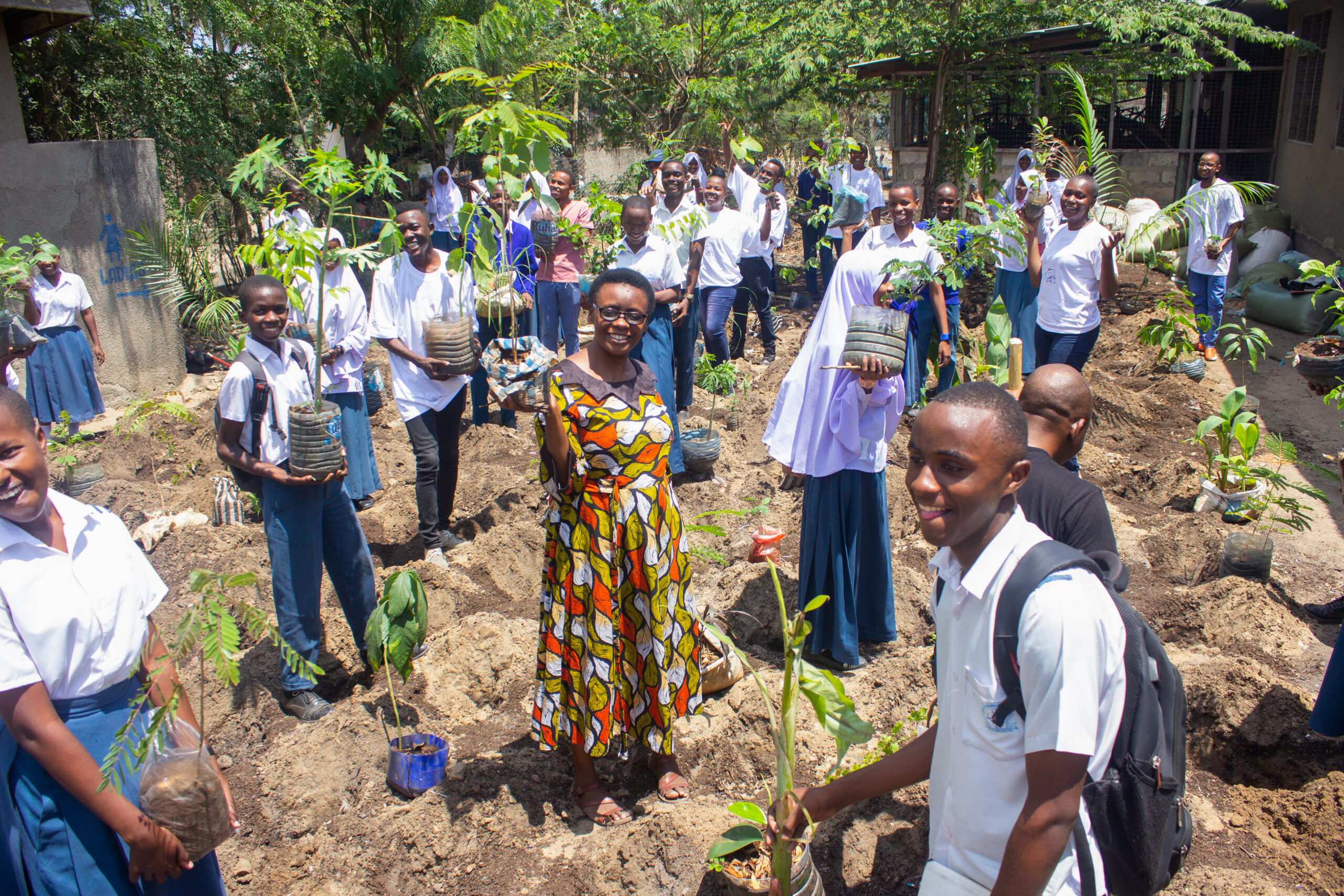
Students are amongst those most excited about the micro-forests, with some wishing to grow their own micro–forests at home and arriving early and leaving late to tend to their new green spaces. “It helps us learn by doing,” explains Nasra, a student at Nzasa Secondary School, “and it creates an attractive environment for our school.” Her classmate Peter, said, “I told my parents about the micro-forest and its importance, and they’ve encouraged me to learn more about nature. I want to make my school greener and keep advocating for the environment.”
“I told my parents about the micro-forest and its importance, and they’ve encouraged me to learn more about nature. I want to make my school greener and keep advocating for the environment.”
Peter, learner
The efforts of teachers and learners, through the PPP initiative, are filling a critical gap in the curriculum – climate education. PPP is part of a broader effort by organisations worldwide for local learners to lead on climate action and engage entire communities in effective, innovative climate response. Community-level leadership is critical in ensuring the sustainability of climate solutions and in Tanzania, we’re already seeing this take shape as a direct result of PPP. The teachers who participated in the workshop are inspired to take it further, with many noting that there is a need to develop climate solutions for other subjects.
Mr. Jenga Othman, Second Master at Nzasa Secondary School, said that since planting the micro-forest, “a special organisation has been introduced and established in our school – a new Environment Club”. He explained how through this club, students and teachers discuss ideas to green their school and wider community, as well as work to conserve the existing natural environment of the school, including the micro-forest. In fact, they are already plotting where to plant the next one.
The involvement of local communities and young people in PPP showcases the importance of engaging and educating everyone in building a sustainable future. In the coming months, AKF will be continuing to grow this approach in Tanzania in partnership with a growing network of government schools, as well as expanding to Kenya and Uganda to develop more learning, evidence, and impact across East Africa. With more efforts like this, we hope that we can create a more sustainable and resilient world for future generations.
